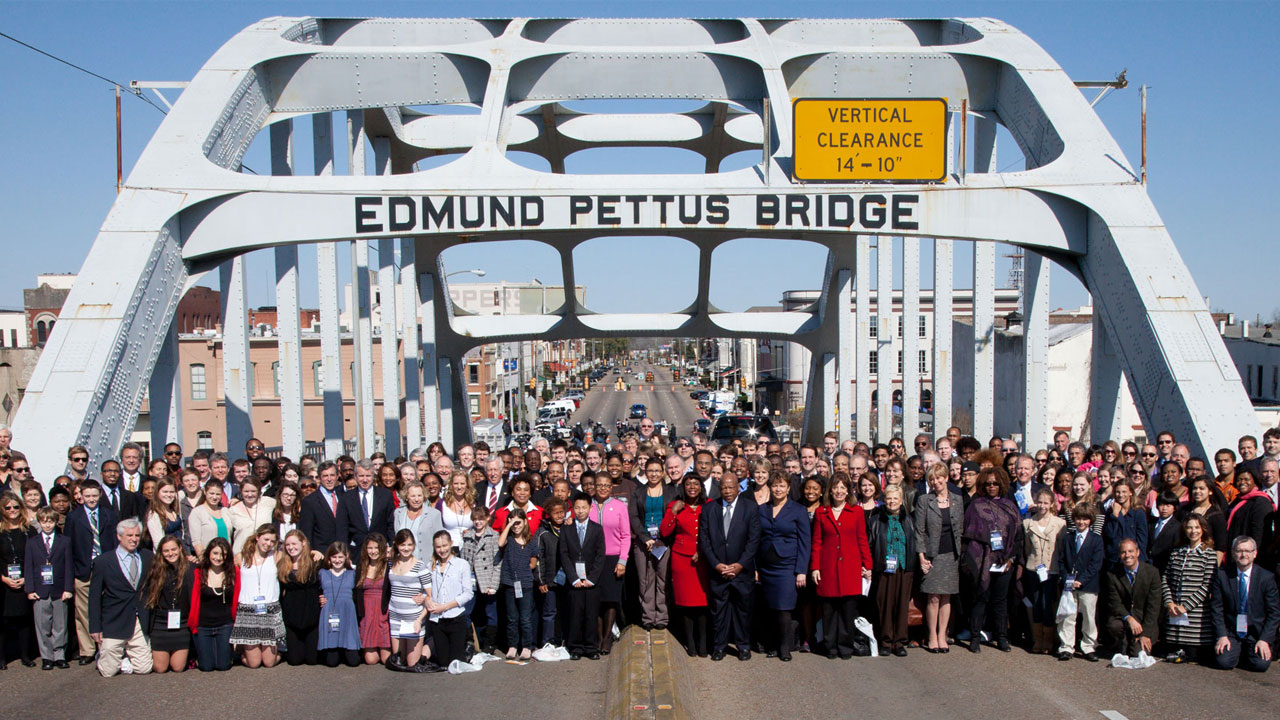I’m honored this weekend to be a participant in the 2016 Congressional Civil Rights Pilgrimage led by the legendary John Lewis and sponsored by the Faith & Politics Institute. Typically, we host the pilgrimage at the Civil Rights Memorial in front of our office during its journey through Alabama. But, this year, the pilgrimage is going to South Carolina instead of Alabama.
The reason for the change? To honor the memory of the nine persons killed at Charleston’s Emanuel African Methodist Episcopal Church on June 17, 2015. The killer, an avowed white supremacist, hoped to spark a race war. Instead, he sparked a remarkable movement of racial reconciliation punctuated by expressions of forgiveness and by the taking down of the Confederate flag from the grounds of the South Carolina Capitol.
Before we get to Charleston, we’ll visit a number of historic black churches that played pivotal roles during the civil rights movement. And we’ll go to Orangeburg to honor the three South Carolina State students – Henry Smith, Samuel Hammond Jr., and Delano Middleton – who were killed in 1968 by highway patrolmen while they were protesting segregation. Although their deaths did not garner the attention of the country as did those of the four white students killed in Kent, Ohio, while protesting the Vietnam War, the three are remembered today on the Civil Rights Memorial.
Remembering the martyrs of the movement – remembering people are still being killed because of the color of their skin, their religion, their ethnicity, their sexual orientation or other characteristic – is critical. But it is not enough. If we are to honor their sacrifices and their lives, we must rededicate ourselves to the unfinished work of the civil rights movement. Understanding and reconciliation are important first steps.
But justice is the ultimate goal.
Photo credit: Faith & Politics Institute



